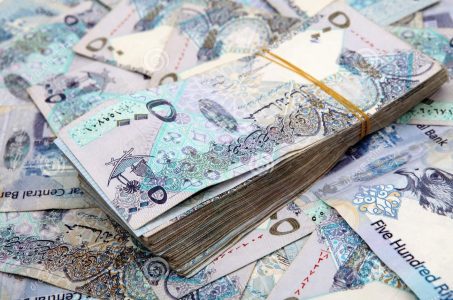
Payment of Hamas salaries delayed the resumption of Qatari funding for Gaza
Payment of Hamas salaries has delayed the resumption of Qatari funding for Gaza, a senior diplomatic source told The Jerusalem Post on Thursday.
Israel already has an approved list of recipients and has checked that none of the names on it are terrorists but are teachers or engineers, for example, the source said.
The channel for paying them, however, is through the Palestinian Authority, which does not want to pay salaries to anyone affiliated with Hamas.
Prior to the 11-day Gaza war in May, known as Operation Guardian of the Walls, Israel allowed Qatar to make regular $30 million cash payments to Gaza, which had gone to needy families and salaries of Hamas officials. Qatar also paid for fuel for the power plant.
Former prime minister Benjamin Netanyahu was often accused of buying calm along the Gaza border by allowing Qatar to transfer cash to Gaza. In the aftermath of the war, Prime Minister Naftali Bennett has insisted that “suitcases of cash” can no longer enter Gaza.
He has agreed in principle that Qatar can resume its payments once an appropriate mechanism is worked out.
The funds will partly be distributed to poor families through postal banks, a senior diplomatic source confirmed.
Payments for fuel for the Gaza power plant have also resumed. In addition, Qatar has pledged to help fund the reconstitution of Gaza.
The mechanism for Qatari funding is an important part of the restoration of calm along the Gaza border. It is also an element of the Egyptian efforts to broker a ceasefire between Israel and Hamas that would prevent another round of violence.
Hamas has insisted that salaries must be part of this deal and at times has even threatened to resume violence against Israel if the funding is not resumed.
The situation along the Gaza border remains tense. The commercial crossing at Kerem Shalom and the pedestrian one at Erez have yet to operate at prewar levels. The Gaza fishing zone has not been fully restored to the 15 nautical miles set prior to the May war.
Israel has set the limit at 12 nautical miles, then reduced it to six, and at the start of this week restored it to 12.
At the start of the week, the Foreign Ministry announced a series of Gaza gestures. As of Sunday, Israel allowed the entry to Gaza of “equipment and goods to assist projects by the international community in Gaza in the fields of food, water, medicine and fisheries have been approved for importation,” the Foreign Ministry stated.
“This in addition to the approval of the importation of electrical and agricultural products from Israel to the Gaza Strip, as well as the export of metal waste from the Gaza Strip to Israel,” it explained.
In addition, Israel has agreed that “Palestinians residing in Gaza would be allowed to travel abroad via the Allenby crossing” as long as they meet the required criteria, the Foreign Ministry said.
It was also decided that subject to approved criteria, Palestinians residing in Gaza would be allowed to travel abroad via the Allenby crossing
The Foreign Ministry noted, however, that these steps would remain in place only as long as the Gaza border remained calm.
UN officials have warned that alongside a Gaza economic crisis, the PA economy is in dire shape in the West Bank.
Bennett is also open to economic projects to help Palestinians in the West Bank, as long as it is coherent with Israeli security needs.
The prime minister views improving the Palestinians’ quality of life as a way to bring greater calm.
At the same time, the diplomatic source said “no good deed goes unpunished,” and the source pointed to one of the first decisions Bennett made as prime minister: to give the Palestinian Authority a million doses of the COVID-19 vaccine in exchange for shots that were supposed to arrive in Ramallah in September or October. The Palestinians first agreed to receive the vaccines, but then rejected them after public pressure.
The source lamented that the Palestinians “make problems for themselves and we’re asked [by the international community] to pay for it. What can we do about [Palestinian special police] killing [protester] Nizar Banat? But with the economic situation, it does concern us and we can try to ease their lives economically.”
Source: JP





